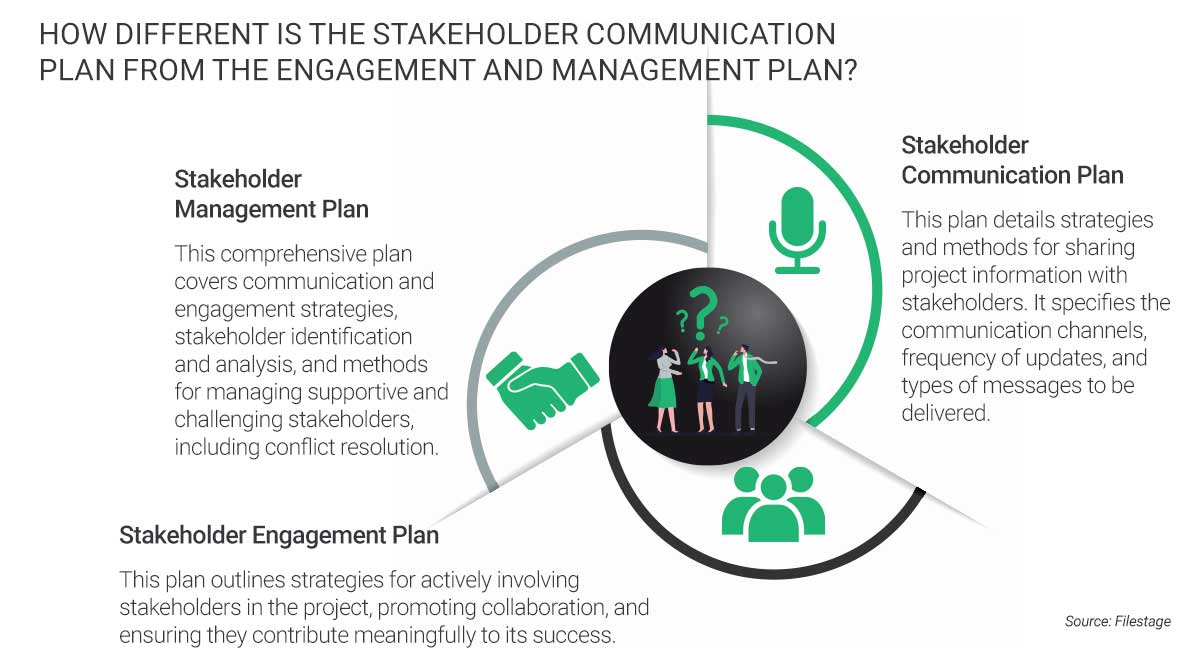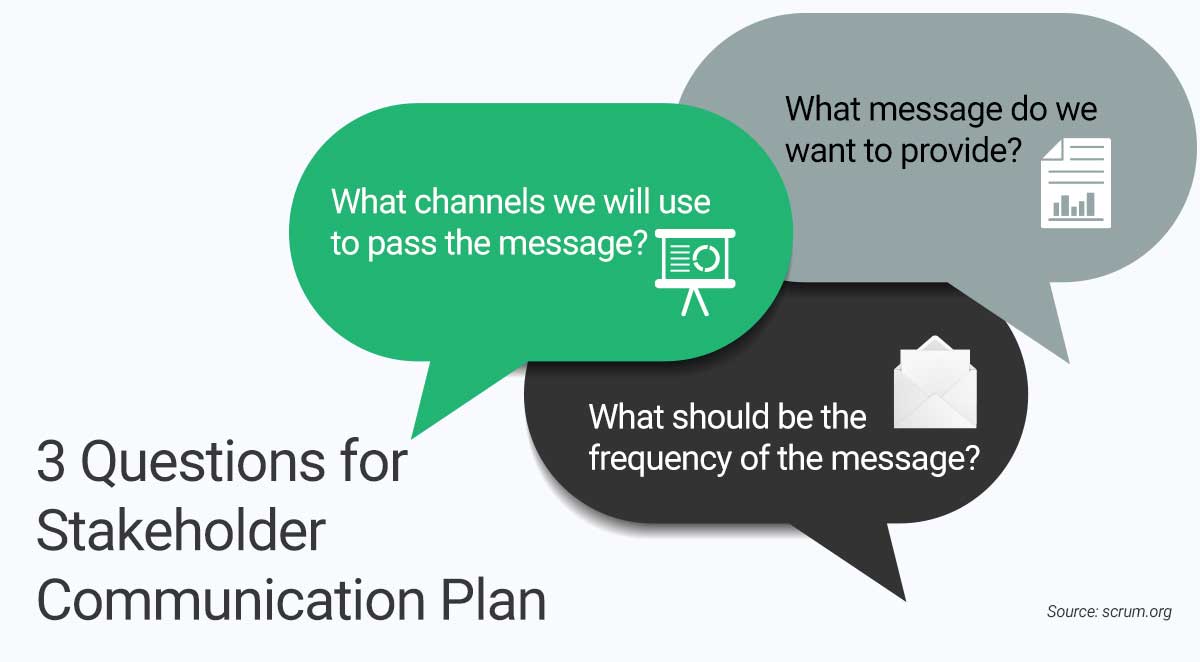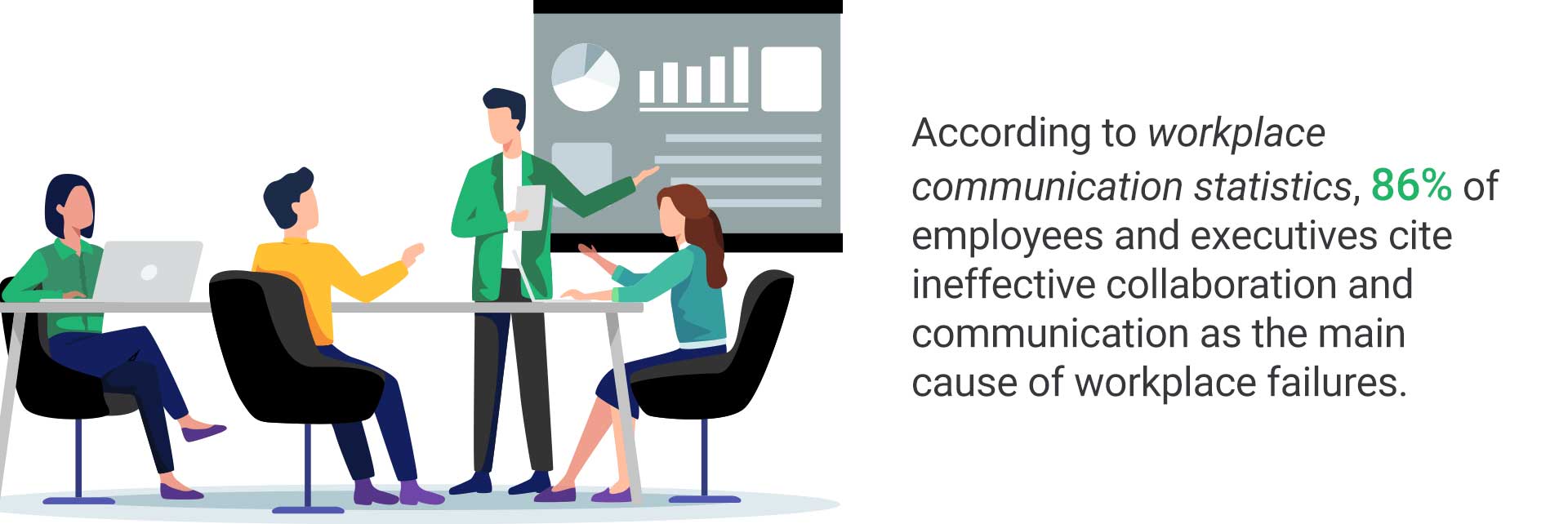
A robust stakeholder communication plan is a must, especially in project management. But what if you skip the stakeholder communication strategy? You risk wasting time and effort. Moreover, clear communication and feedback from key stakeholders—such as employees, clients, investors, and partners—are crucial. Without them, your projects may fall short, impacting your budget and timelines. However, randomly sending out information is ineffective. Your approach to stakeholder communication needs to be planned, structured, and consistent.
A stakeholder communication plan outlines how and when your stakeholders will receive information and what is expected from them in return. With a clear communication strategy, you can manage expectations, build trust, and minimize constant requests for updates. How do you achieve that? Modern technology solutions like artificial intelligence enable you to customize the communication approach to meet the specific needs of each project stakeholder, thereby enhancing the efficiency of the communication process.
In this article, we will discuss step stakeholder communication plan to keep stakeholders informed throughout your project.
But before we dive in...
What is a Stakeholder Communication Plan?
A stakeholder engagement plan details the involvement and influence of your project stakeholders. It also includes your stakeholder communication strategy, specifying when to contact each stakeholder, the platform to use, and the information level to share.
Stakeholders can be individuals within your team or external parties affected by your project.
A project’s internal stakeholders might include managers, operations teams, department heads, and board members. External stakeholders include clients, customers, investors, suppliers, business partners, or shareholders.
Since communication with stakeholders starts at the project's inception, as a project leader, you must develop your communication plan during the project planning phase. Your communication strategy must identify the key stakeholders who need to receive communications, specifying the type, frequency, and level of detail. It is practical to develop the communications plan right after the project planning process. As the project progresses, you can adjust your stakeholder communication strategies to accommodate their needs.
Remember, a stakeholder communication plan aims to ensure that the correct information is shared with stakeholders appropriately, keeping them informed, engaged, and supportive. An effective communication strategy is essential for gaining the full support of your stakeholders for your project.
Stakeholder Communications: Who Needs to Know What and When?
Begin with a simple grid listing the stakeholders you've prioritized and note the types of communications they need and expect. When creating this plan, remember that high-level executives must be informed about high-profile projects, but their time is valuable. As a skilled project leader, you must balance sharing important information with stakeholders without overwhelming them with details. Similarly, "extended" stakeholders don't need access to all project details but should feel heard and involved. Because stakeholder perceptions shift in real time, many organizations now rely on continuous stakeholder intelligence to track sentiment changes, surface emerging concerns, and adjust communication before trust erodes.
Some stakeholders, such as executive leads, may prefer a more formal, less frequent communication method. They might appreciate immediate, crucial project details with a simple button click, ensuring no critical delays for time-sensitive data.
While developing the stakeholder communications plan, consider how to handle risk and stakeholder feedback. For example, if a timeline change occurs in an IT project, determine which stakeholders need to know and how to inform them. Also, decide who should be updated and how. The same goes for positive developments.

Benefits of a Stakeholder Communication Plan
Maintaining clear and concise communication throughout a project is essential for smooth operation and stakeholder confidence. Here are some additional benefits of a well-structured stakeholder communication plan:
- Proactive Planning: You can stay prepared and ahead of the game, knowing how and when to communicate with important stakeholders. A well-organized project manager inspires confidence.
- Anticipating Needs: Regular communication allows you to address stakeholders' needs before they become issues, share news and updates, and mitigate risks or address roadblocks.
- Team Alignment: Sharing the plan with the project team ensures everyone knows who is informed about what and when. This fosters a sense of ownership and accountability.
- Adaptability: The plan can evolve to include new stakeholders, adapt to shifting goals, and accommodate different project phases. An adaptable stakeholder communication plan helps you and your team inspire maximum confidence from stakeholders.
Creating a stakeholder communication plan ensures that all relevant parties are informed, engaged, and supportive, ultimately contributing to the project's success.

Critical Elements of a Successful Stakeholder Communication Plan
A solid stakeholder communication plan is necessary to keep everyone on the same page and ensure your project runs smoothly. It’s all about knowing who your stakeholders are, setting clear goals, and keeping the lines of communication open and effective. Let’s explore the key elements that make a communication plan successful and keep your stakeholders happy and informed.
Identify Stakeholders
Begin by identifying the individuals or groups you need to communicate with. Consider who has an interest or influence on the project and who will be affected by its outcomes. Stakeholders are typically classified as internal or external. Gather detailed information about their roles, levels of interest, and influence. Using a stakeholder map to prioritize them based on their influence and interest will help tailor your messages to their needs.
Set Communication Objectives
Define clear communication objectives at the outset. Determine what you aim to achieve, whether sharing knowledge or prompting specific actions from an engaged audience. Clear goals are crucial for effective communication and help you meet your and your stakeholders' expectations.
Choose Communication Methods
After setting your objectives, select the most appropriate communication methods for your stakeholders. Consider where you will most likely reach them effectively and what messages you will convey. Some stakeholders prefer email updates, while others might opt for meetings or timely project reports. So, choose the channels your stakeholders are most comfortable with to ensure your messages get through. Plan alternative methods, if necessary.
Create Your Stakeholder Communication Plan
Compile the gathered information into a comprehensive communication plan. Consistency is key here. Develop a regular schedule for your communications so stakeholders know when to expect updates. Whether it’s weekly, monthly, or tied to project milestones, a schedule helps keep everyone on the same page. Create a calendar to organize the frequency of updates for different stakeholders.
Execute and Monitor the Plan
Implement and monitor your communication plan. Be ready to adapt your strategies based on feedback and any changes in the project. Regularly check in to see what’s working and what isn’t, and be flexible enough to improve. Focus on fostering trust, collaboration, and mutually beneficial relationships through effective stakeholder communication, driving business success and positive community impact.

Effective communication with external stakeholders is essential for shaping your organization's or project's perception beyond its internal sphere. It's a customized approach to engaging with external parties such as customers, investors, and communities. Have you ever wondered how you can stay one step ahead in creating a robust stakeholder communication plan? That’s where predictive analytics comes in. This AI-powered solution helps you anticipate project issues in advance, personalize communication, and keep everyone engaged. Let’s explore how this powerful solution can revolutionize your stakeholder communication plan and simplify project management.
Role of Predictive Intelligence in Stakeholder Communication Plan
Leveraging AI in your stakeholder communication plan offers numerous benefits. By analyzing massive datasets, AI extracts valuable insights into stakeholder sentiment and potential issues, enabling proactive strategy adjustments. It personalizes communication by offering various visualizations and reports that can be shared with different audiences, such as project sponsors, executives, project managers, and clients, ensuring all are aligned with proper governance and oversight. Predictive intelligence solution also automates data collection from various sources, including project management, tasks, and financial systems, providing real-time updates to keep stakeholders engaged. Additionally, AI analyzes feedback to drive continuous improvement and optimizes resource allocation to meet stakeholder expectations efficiently.
What’s the Way Ahead?
A well-structured stakeholder communication plan is essential for any project's success. Without it, you risk misalignment, inefficiencies, and potential project failure. Clear and consistent communication builds trust, manages expectations, and ensures stakeholder engagement, leading to smoother project execution and better outcomes. Leveraging modern technology solutions like AI enhances this process, offering tailored communication strategies that meet each stakeholder's unique needs. By integrating predictive intelligence, you can proactively address issues, personalize interactions, and keep everyone informed and involved. If you are looking for a go-to place for all your project management needs, including a stakeholder communication plan, look no further than TrueProject.
TrueProject is an AI-powered comprehensive project management solution that enhances and elevates your existing PM frameworks, offering unparalleled insights and transforming how you view your project data. The solution lets you receive real-time alerts about potential risks and issues across your project portfolio and keep stakeholders updated. Its multi-level views, dashboards, and reports deliver vital information, ensuring everyone has the insights for strategic decision-making. These insights help you make informed decisions and strategize corrective actions to maintain project health. In today's fast-paced project environments, this strategic approach to stakeholder communication is beneficial and indispensable for achieving your project goals and driving organizational success.
 About the Author:
About the Author:
Nivedita Gopalakrishna is a content marketing specialist within the TrueProject Marketing team with extensive experience in blog writing and website content creation across diverse industries. Nivedita’s proficiency in crafting engaging blog posts and informative website content is a testament to her years of experience. Beyond her prowess in written communication, Nivedita has a knack for creating visually appealing static graphics that have played a pivotal role in expanding TrueProject's marketing efforts. Through thoughtful design choices, she has helped convey the essence of the brand and captivate audiences effectively. Outside the professional sphere, Nivedita is a trained classical singer and a fitness enthusiast, embodying creativity and wellness in and out of the office.
Endnotes:
- “Nurturing Connections through External Stakeholder Communications.” Goodman Lantern. (n.d.). https://goodmanlantern.com/crisis-management-services/external-stakeholder-communications/
- Mahjoobnia, Ruh. “How AI Revolutionizes Stakeholder Engagement for Project Managers.” LinkedIn. September 18, 2023. https://www.linkedin.com/pulse/how-ai-revolutionizes-stakeholder-engagement-project-mahjoobnia/
- Anderson, Lis. “How To Create an Effective Stakeholder Communication Plan.” Forbes. October 27, 2023. https://www.forbes.com/sites/forbesagencycouncil/2023/10/27/how-to-create-an-effective-stakeholder-communication-plan/?sh=40bc726d47ed
- “The ultimate 6-step stakeholder communication plan.” Filestage. January 3, 2024. https://filestage.io/blog/stakeholder-communication-plan/
- King, Richard. “The ultimate 5-step stakeholder communication plan (that works).” Finance Alliance. (n.d.). https://www.financealliance.io/stakeholder-communication-plan/
- Eby, Kate. “How to Create Stakeholder Management and Communication Plans.” Smartsheet. December 09, 2016. https://www.smartsheet.com/how-create-stakeholder-management-and-communication-plans
- Gautam, Lavaneesh. “Stakeholder Communication Strategy: Part 3 of 4 Steps of Stakeholder Engagement.” Scrum.Org. May 05, 2023. https://www.scrum.org/resources/blog/stakeholder-communication-strategy-part-3-4-steps-stakeholder-engagement
- “How To Create an Effective Stakeholder Communication Plan.” Indeed. April 07, 2023. https://www.indeed.com/career-advice/career-development/how-to-create-stakeholder-communication-plan





